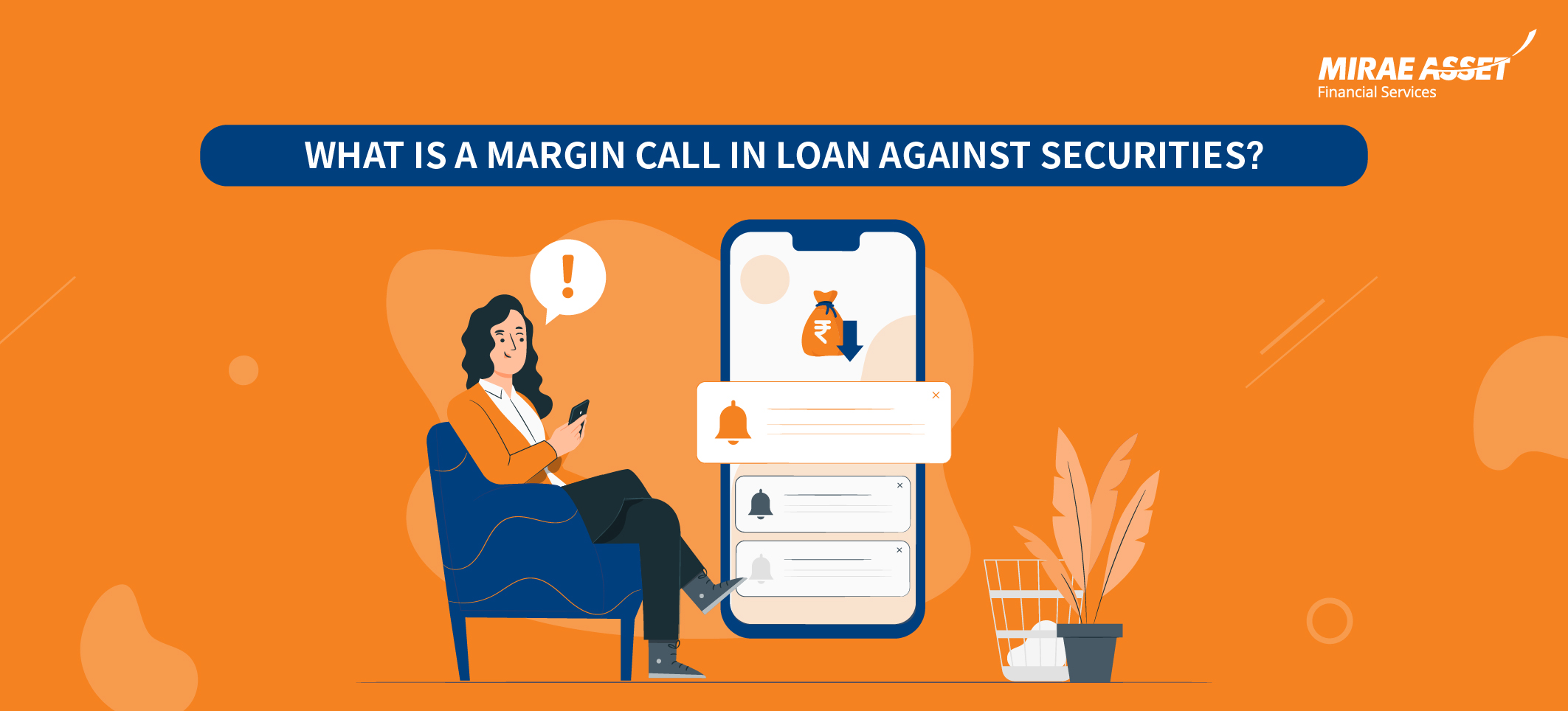What is a Margin Call in Loan Against Securities?

Understanding Margin Calls
A margin call in Loan Against Securities is a financial mechanism that helps maintain the balance between borrowed funds and the value of pledged collateral. This important concept ensures that lenders are adequately protected while providing borrowers with flexible access to credit based on their securities portfolio.
A margin call occurs when the value of the pledged securities declines, leading to a reduction in the eligible loan limit. If the borrowed amount exceeds this revised limit, the borrower must either deposit additional funds or pledge more securities to cover the shortfall. Failure to do so may result in the lender taking corrective measures to protect their interests and maintain the loan's security.

To Get Started With Your Loan against securities Application
Difference Between Margin Calls in Loan Against Securities and Trading
Although margin calls exist in both trading and Loan Against Securities, there are key differences:
- Purpose: In trading, a margin call arises when a trader’s account balance falls below the required maintenance margin. In Loan Against Securities, it happens when the value of pledged securities drops, reducing the loan’s collateral value.
- Response: In trading, investors can either deposit more funds or sell securities. In Loan Against Mutual Fund and Shares, borrowers can either repay the shortfall or pledge additional securities.
- Consequences: In trading, failure to meet a margin call can lead to forced squaring off of positions by the broker. In Loan Against Securities, the lender may liquidate pledged securities if the margin call is not met within the stipulated time.
Example of a Margin Call in Loan Against Securities
Consider Arun, who has pledged securities worth Rs.10 lakhs to avail an overdraft loan against securities with an eligible loan limit of Rs.4.5 lakhs (45% of Rs.10 lakhs). Arun has withdrawn the entire Rs.4.5 lakh limit.
Due to market fluctuations, the value of his pledged securities drops to Rs.9.5 lakhs. This reduces his eligible loan limit to Rs.4,27,500 (45% of Rs.9.5 lakhs). Since his utilized amount remains Rs.4.5 lakhs, the excess amount of Rs.22,500 (Rs.4,50,000 - Rs.4,27,500) becomes overdue, triggering a margin call.
To address this margin call, Arun must either:
- Repay Rs.22,500 to bring his utilized amount within the revised limit, or
- Pledge additional securities worth Rs. 50,000 to restore the collateral value.

To Get Started With Your Loan against securities Application
Consequences of Not Meeting a Margin Call in Loan Against Securities
If a borrower fails to meet the margin call within the stipulated timeframe, the lender has the authority to liquidate the pledged securities to recover the overdue amount. This is typically done as a last resort when other corrective actions are not taken by the borrower.
Moreover, failure to clear the margin call can have the following consequences:
- Loss of Securities: The lender may sell a portion of the pledged securities to recover the outstanding dues.
- Impact on Credit Score: Defaulting on a margin call can negatively impact the borrower’s credit score, making it difficult to obtain loans in the future.
- Increased Financial Stress: Unpaid dues may lead to further complications, including additional penalties or legal actions.
Importance of Meeting Margin Call Requirements
Maintaining sufficient collateral in a Loan Against Securities account is crucial for several reasons:
- Avoids Forced Liquidation: Meeting margin call requirements ensures that pledged securities are not forcibly sold.
- Maintains Financial Stability: By proactively managing margin calls, borrowers can maintain liquidity and avoid financial distress.
- Protects Credit Score: Consistently meeting obligations prevents adverse impacts on credit history and ensures better borrowing opportunities in the future.
- Ensures Continued Access to Credit: Keeping the account in good standing allows borrowers to continue utilizing their overdraft facility without disruptions.
Conclusion:
A margin call in Loan Against Securities is a crucial aspect that borrowers must monitor closely. It ensures that the collateral value remains adequate and prevents financial repercussions. By understanding how margin calls work, responding promptly, and maintaining adequate security value, borrowers can effectively manage their LAS accounts and safeguard their financial health. Always staying ahead of potential shortfalls can help borrowers maintain access to credit while protecting their investments from unnecessary liquidation.

